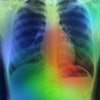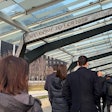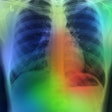
NEW YORK (Reuters Health), Mar 11 - Rectal cancer patients 75 and older are less likely to undergo radiation before undergoing surgery than are younger people with the disease, new research from Sweden shows.
The analysis of data from about 15,000 patients treated for the disease between 1995 and 2004 also showed that older patients were less likely to have advanced disease, but also less likely to survive for five years after diagnosis.
Future studies should look at whether age differences in rectal cancer treatment are intentional, Dr. Barbel Jung of Visby Hospital and her colleagues conclude.
Rectal cancer primarily occurs in people 50 and older, Jung and her team note in the journal BMC Cancer, and the aging of the Swedish population means that the disease is becoming increasingly common. While research shows that older people may be less likely to undergo certain procedures, they add, there is growing evidence that relatively healthy older people will benefit from these therapies just as much as younger patients do.
To investigate whether there might be age-related differences in rectal cancer treatment, Jung and her colleagues analyzed data from the Swedish Rectal Cancer Registry, which includes nearly all patients diagnosed with the disease in Sweden since 1995. They looked at 15,104 patients, of whom 42.4% were 75 or older.
About 15% of the older patients had disease that had spread beyond the colon, compared to nearly 18% of the younger patients, the researchers found. The older patients were less likely to have had abdominal surgery to remove their tumors; 68.5% had this procedure, compared to 84.4% of younger patients.
The researchers also found that the older patients were more than three times as likely as the younger patients to have had an operation called Hartmann's procedure, which requires a colostomy. And while 67.2% of the younger patients had radiation treatment before surgery, just 34.3% of older patients did.
In terms of survival, 73% of the older patients treated with intent to cure lived for five years or longer, while 78% of the younger patients did. Tumors recurred in the rectal area for 9% of the older patients and 8% of the younger patients.
More research is needed to understand both the effectiveness of treatments for rectal cancer and how these therapies influence patients' quality of life, the researchers conclude.
Source: BMC Cancer, online February 26, 2009.
Last Updated: 2009-03-10 14:05:52 -0400 (Reuters Health)
Related Reading
Preoperative radiotherapy reduces rectal cancer recurrences, March 6, 2009
Rectal cancer survival improved with response to radiation therapy, February 24, 2009
Copyright © 2009 Reuters Limited. All rights reserved. Republication or redistribution of Reuters content, including by framing or similar means, is expressly prohibited without the prior written consent of Reuters. Reuters shall not be liable for any errors or delays in the content, or for any actions taken in reliance thereon. Reuters and the Reuters sphere logo are registered trademarks and trademarks of the Reuters group of companies around the world.


















